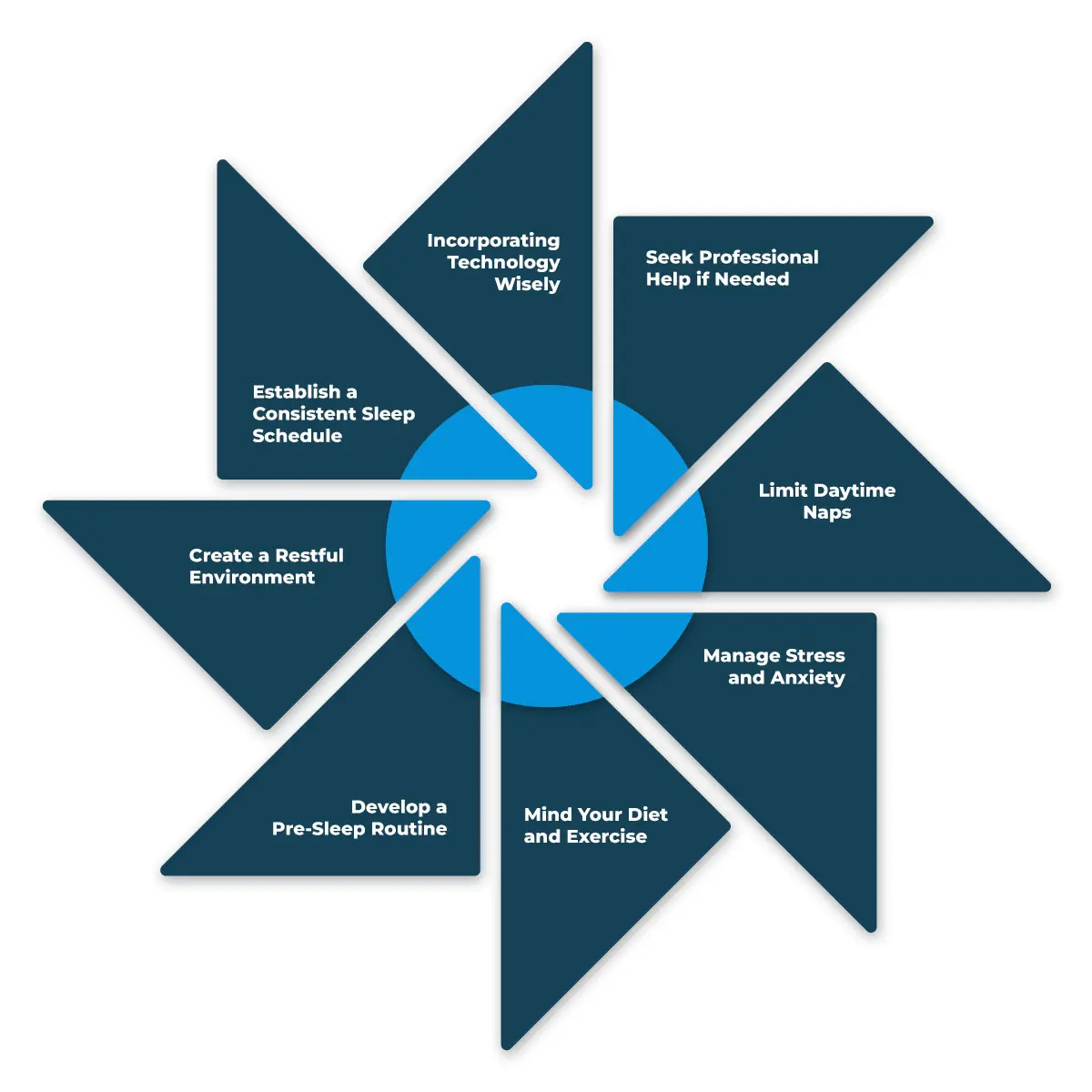

If you’ve ever tossed and turned through the night, you’re not alone. Many of us have faced frustrating evenings when sleep seems like a distant dream. But have you ever considered how these restless nights might affect more than just your mood the next day?
High blood pressure, a silent threat lurking in the shadows, has been linked to insufficient sleep, posing a question worth pondering. Curiosity has always driven us to ask questions, to explore, to seek out the unknown. And in the world of our health, there are few questions as compelling as the relationship between sleep and blood pressure.
Let’s delve into this connection together, unraveling the mysteries that lie beneath the surface. By understanding this link, we may find ourselves on a path not just to better sleep, but to a heartier, healthier life.
The relationship between sleep and blood pressure is one that has captured the attention of medical professionals and health enthusiasts alike, and for good reason. It turns out, the question of whether lack of sleep causes high blood pressure isn’t just a matter of curiosity—it’s a critical piece of the puzzle in understanding our overall health.
At the heart of this exploration is a simple yet profound truth: yes, lack of sleep can indeed contribute to high blood pressure. This isn’t just speculation; it’s backed by a growing body of research that sheds light on how the quality and quantity of our sleep play a crucial role in regulating our blood pressure. But how does this happen? And more importantly, what can we do about it?
First, let’s understand the mechanics. When we sleep, our bodies undergo a process of repair and rejuvenation. This includes our cardiovascular system, where blood pressure naturally dips during restful sleep. This phenomenon, known as “nocturnal dipping,” is crucial for cardiovascular health. However, when sleep is disrupted or shortened, this dipping doesn’t occur as it should, leading to higher average blood pressure levels over time.
Moreover, poor sleep triggers a stress response in the body, releasing hormones that increase heart rate and blood pressure. This response, while temporary, can have lasting effects if poor sleep becomes a pattern. Over time, this can lead to hypertension, a condition characterized by persistently high blood pressure and a significant risk factor for heart disease and stroke.
Several sleep conditions can significantly impact your heart health:
A lack of quality sleep can lead to high blood pressure for several reasons. During a normal sleep cycle, your body’s demand for blood decreases, and your heart gets a chance to slow down, reducing blood pressure.
However, if your sleep is interrupted or too short, your body doesn’t get the chance to lower your blood pressure as it should. This chronic state of alert keeps your blood pressure elevated for longer periods.
Moreover, poor sleep can trigger the release of stress hormones like cortisol, which naturally increase your heart rate and blood pressure. Over time, these nightly spikes can lead to sustained high blood pressure, even during the day.
Finding the right amount of sleep to manage your blood pressure is akin to discovering the perfect recipe for a healthy life. It’s about balance, consistency, and understanding your body’s needs. While individual sleep requirements may vary, the general consensus among health experts points toward a golden range that can help in maintaining optimal blood pressure levels.
For most adults, 7 to 9 hours of quality sleep each night is considered the ideal range to support overall health and well-being, including blood pressure management. This recommendation isn’t arbitrary; it’s grounded in a growing body of research that links adequate sleep with a plethora of health benefits, from improved heart health to enhanced mental clarity and emotional resilience.
Sleeping within this ideal duration helps your body regulate the stress hormones and supports your nervous system, both of which play a critical role in controlling blood pressure. During the deeper stages of sleep, your body enters a state of relaxation, allowing your heart rate and blood pressure to decrease. This nightly “reset” is crucial for preventing chronic elevation of blood pressure, reducing the risk of hypertension.
Knowing whether you’re getting enough sleep to manage your blood pressure effectively involves paying attention to how you feel during the day. Signs of adequate sleep include:
Let’s walk through some effective strategies to refine your sleep routine, ensuring that every night contributes positively to your blood pressure management.

1. Establish a Consistent Sleep Schedule
Consistency is key. Going to bed and waking up at the same time every day, even on weekends, helps regulate your body’s internal clock. This consistency aids in falling asleep more easily and experiencing deeper, more restorative sleep phases that are beneficial for blood pressure regulation.
2. Create a Restful Environment
Your bedroom should be a sanctuary designed for sleep. Keep it cool, dark, and quiet. Consider using blackout curtains, eye masks, earplugs, or white noise machines to block out disturbances. Ensure your mattress and pillows are comfortable and supportive, inviting restful sleep.
3. Develop a Pre-Sleep Routine
Engage in calming activities before bedtime to signal your body that it’s time to wind down. This might include reading, taking a warm bath, practicing deep breathing, or meditation. Avoid stimulating activities that can increase your heart rate and blood pressure, such as intense exercise or engaging with electronics.
4. Mind Your Diet and Exercise
Nutrition and physical activity have a profound impact on sleep quality and blood pressure. Avoid heavy or large meals, caffeine, and alcohol close to bedtime, as they can disrupt sleep. Regular physical activity, preferably earlier in the day, can help you fall asleep faster and enjoy deeper sleep, aiding in blood pressure control.
5. Manage Stress and Anxiety
Stress and worry are common culprits behind sleepless nights and elevated blood pressure. Find stress-reduction techniques that work for you, such as yoga, mindfulness, or journaling, and incorporate them into your evening routine to ease your mind before bedtime.
6. Limit Daytime Naps
While napping can be a good way to make up for lost sleep, long or irregular napping during the day can negatively affect your nighttime sleep quality and rhythm. If you choose to nap, keep it brief (15-30 minutes) and avoid doing so late in the day.
7. Seek Professional Help if Needed
If you’ve made changes to your sleep habits and still struggle with getting restful sleep or if you suspect a sleep disorder such as sleep apnea, consult a healthcare professional. Addressing these issues is crucial for both your sleep quality and blood pressure management.
8.Incorporating Technology Wisely
Use technology to your advantage by utilizing apps that promote relaxation or sleep, but be mindful of screen time. The blue light emitted by screens can interfere with your natural sleep cycle, so switch off electronic devices at least an hour before bedtime.
By implementing these strategies, you’re not just working towards better sleep; you’re investing in your heart health and overall well-being. Remember, the journey to improved sleep and lower blood pressure is a gradual process, requiring patience and persistence. Adjusting your sleep habits is a powerful step in the right direction, offering a foundation upon which to build a
In conclusion, the question “can lack of sleep cause high blood pressure?” finds its answer in the affirmative through the intricate links between sleep quality, duration, and cardiovascular health. Ensuring sufficient, restful sleep is not merely a cornerstone of a healthy lifestyle; it’s a critical factor in managing and preventing high blood pressure. By adopting healthier sleep habits and recognizing the importance of a good night’s rest, we take a significant step towards safeguarding our heart health and enhancing our overall well-being. Let this understanding guide us towards making sleep a priority, for the sake of our hearts and our lives.
Talk to an Expert Now